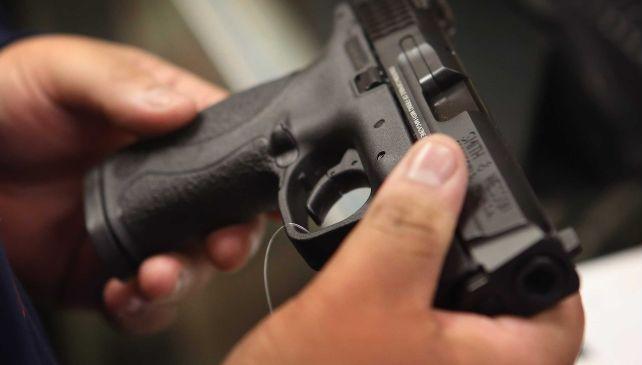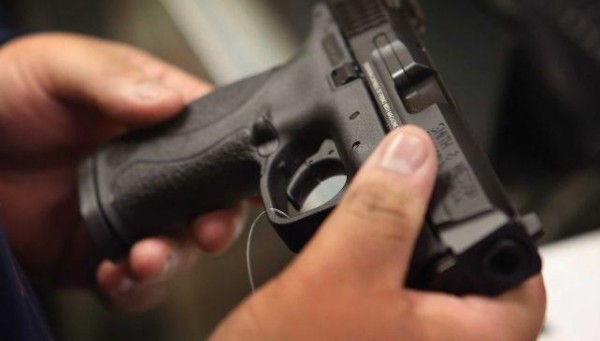On Monday, U.S. District Judge Edmond Chang ruled that Chicago’s ban on licensed gun stores is unconstitutional. In his ruling, Chang concluded that the city could not prove that banning the legal sale of guns helped reduce violence.
He wrote, “The stark reality facing the City each year is thousands of shooting victims and hundreds of murders committed with a gun. But on the other side of this case is another feature of government: certain fundamental rights are protected by the Constitution, put outside government’s reach, including the right to keep and bear arms for self-defense under the Second Amendment.”
“Chicago’s ordinance goes too far in outright banning legal buyers and legal dealers from engaging in lawful acquisitions and lawful sales of firearms,” Chang continued. ”…the flat ban on legitimate sales and transfers does not fit closely with [Chicago’s] goals.”
Chang delayed his ruling from taking effect — this way, the city has time to appeal.
Roderick Drew, a spokesman from Chicago’s Law Department, said on Monday that Mayor Rahm Emanuel “strongly disagrees” with the new ruling. In a statement, the city said, “We need stronger gun safety laws, not increased access to firearms within the city.”
But Todd Vandermyde, a spokesman for the National Rifle Association (NRA), does not believe the city will be successful in its appeal. He said, “The city is going to have to allow retail gun shops to operate and they are going to have to allow individuals to transfer firearms in normal transactions. So the question now is: How much more money does Rahm (Emanuel) want to spend fighting it?”
Eugene Kontorovich, a constitutional law professor at Northwestern University, said that since citizens have the right to own a gun, they also have the right to obtain one. Kontorovich said, “This is part of a broader package strategy to slow-walk gun rights… They could have been a lot smarter and said we will allow gun sales but we’re just going to regulate the heck out of it.”
Here is the bottom line: If gun control were effective, Chicago would be the safest city in the country. Prior to 2013, Illinois was the only state where carrying a concealed weapon was illegal. In December 2012, federal judges struck down the ban, ruling it unconstitutional. Despite a history of strict gun policies, Chicago is one of the nation’s most violent and deadly cities. In 2012, there were over 500 gun-related deaths in Chicago. That is up over 10 percent from the rate in 2005. Gun control is clearly not working there.
Houston is similar to Chicago in socioeconomic factors like population, density, and racial segregation. Both cities are plagued with drugs and human trafficking. Chicago and Houston are America’s third and fourth most populous cities, respectively, each with between 2 and 3 million residents. Non-whites make up 50-60 percent of the population in both places, and the poverty levels in each city are almost identical at just under 30 percent. Yet in 2012, there were only 217 murders in Houston — less than half of Chicago’s death toll. A major difference between the two cities: Houston has very few gun laws. Criminals there know that many citizens are well armed for self-protection.
Gun control supporters have good intentions — but good intentions do not always yield the desired results. When will politicians in Chicago stop thinking with their hearts and start thinking with their heads?












Sign up on lukeunfiltered.com or to check out our store on thebestpoliticalshirts.com.